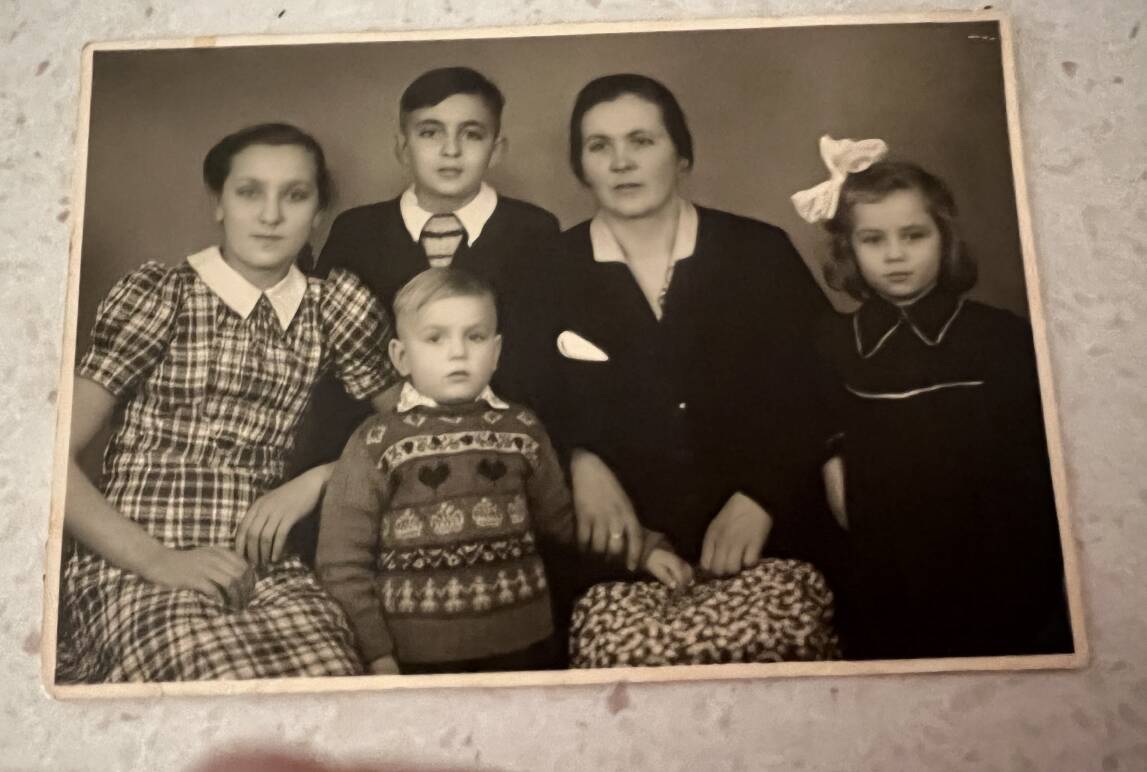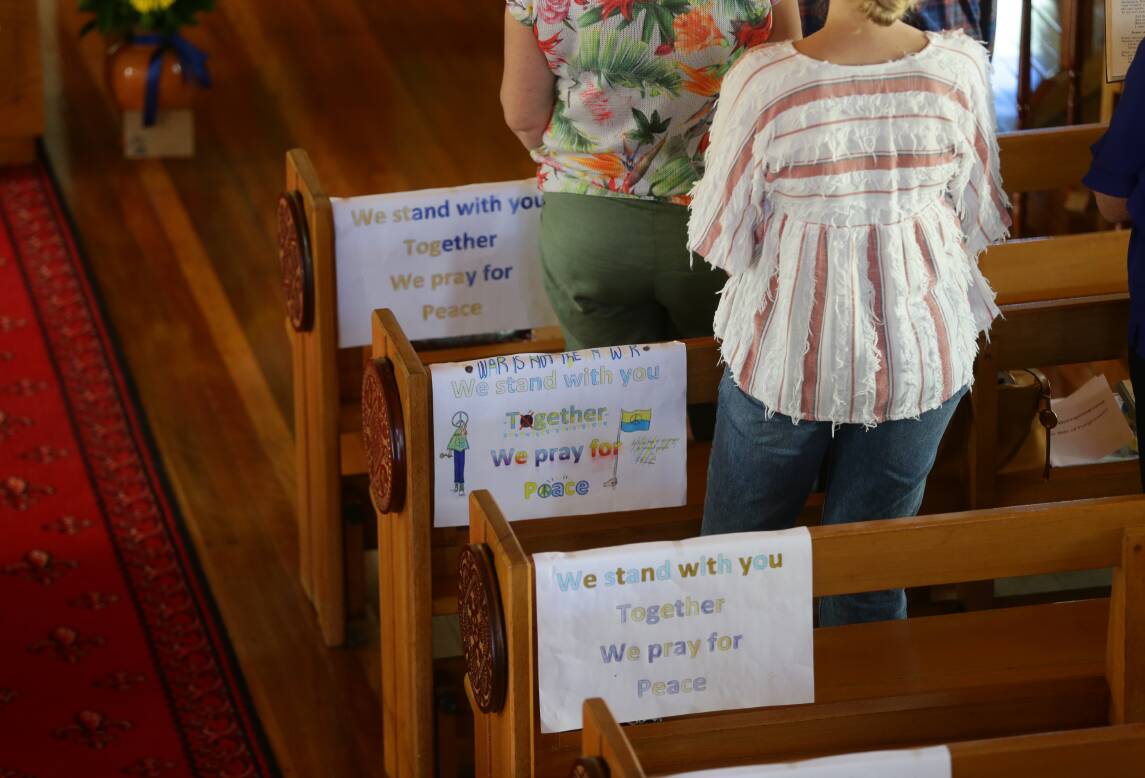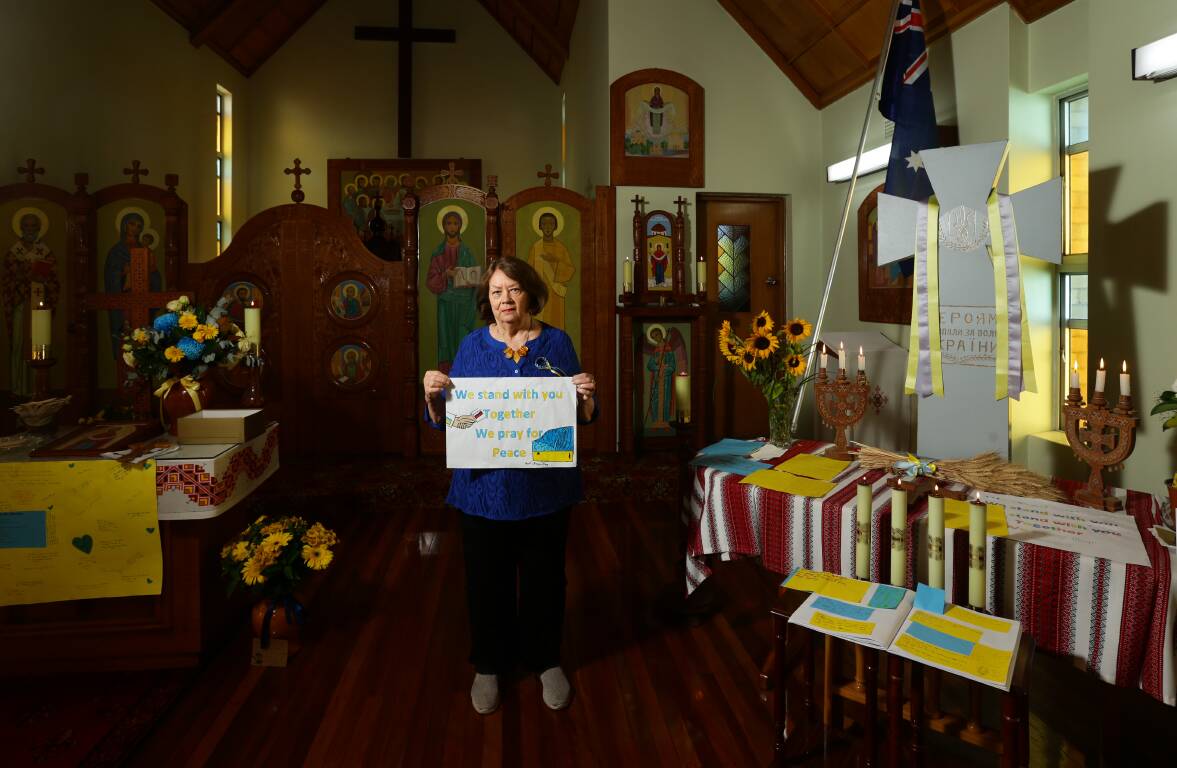
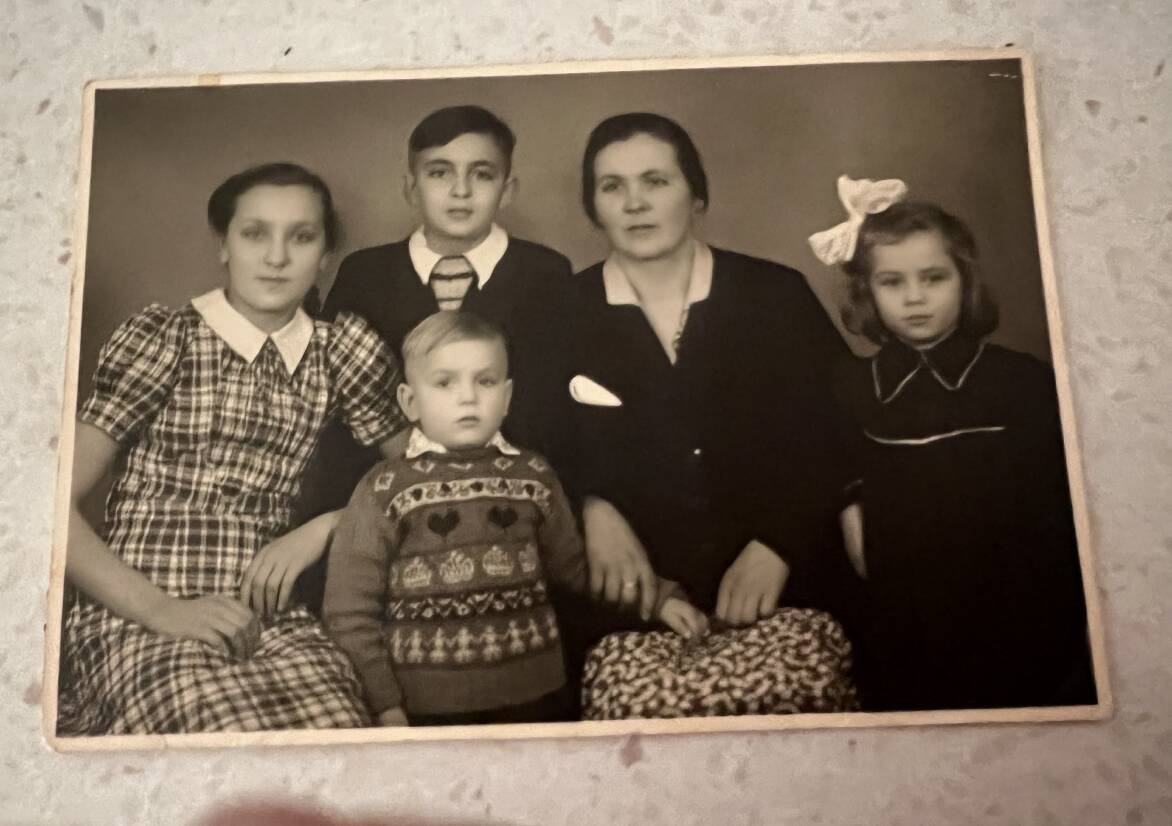
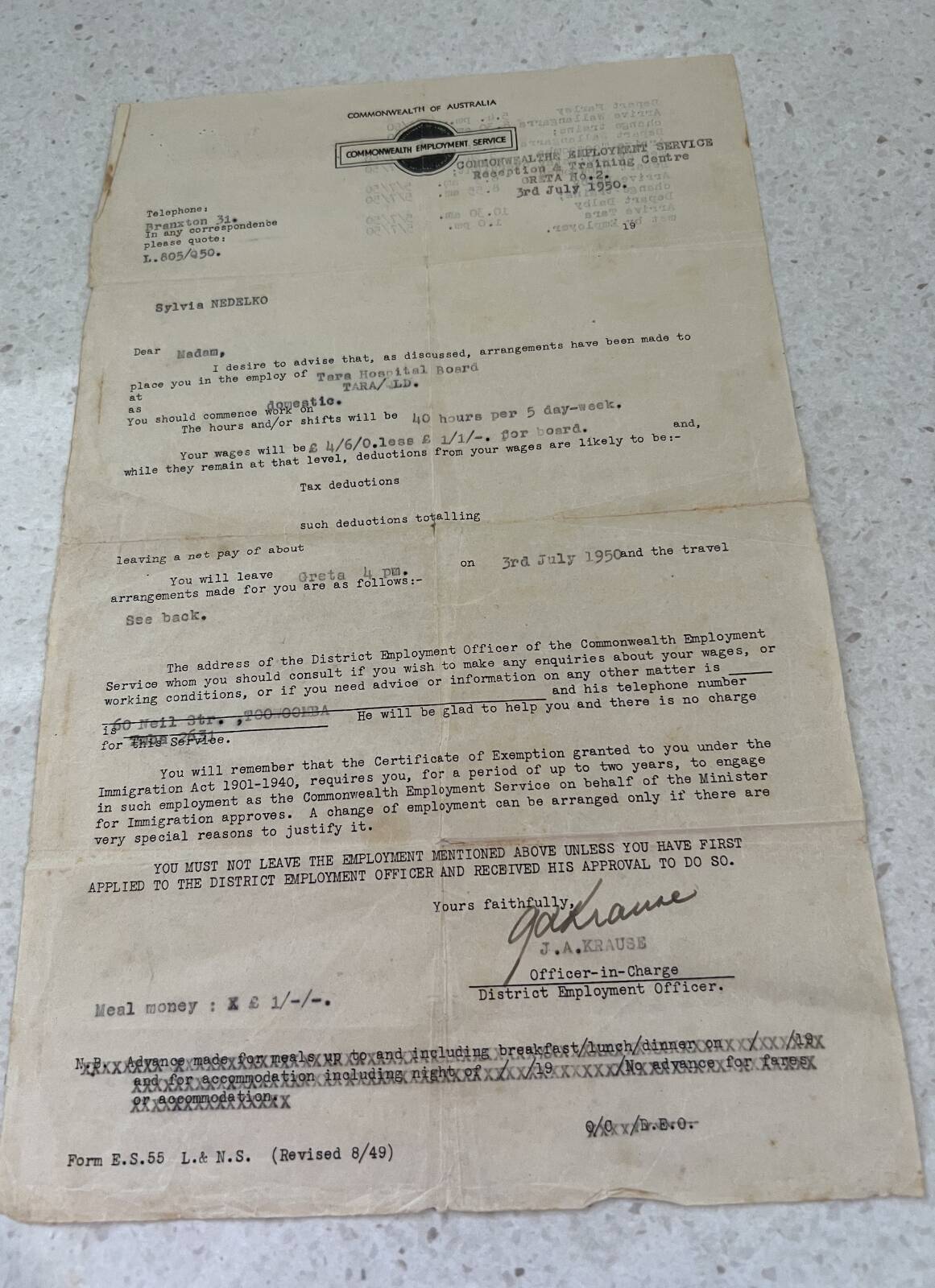
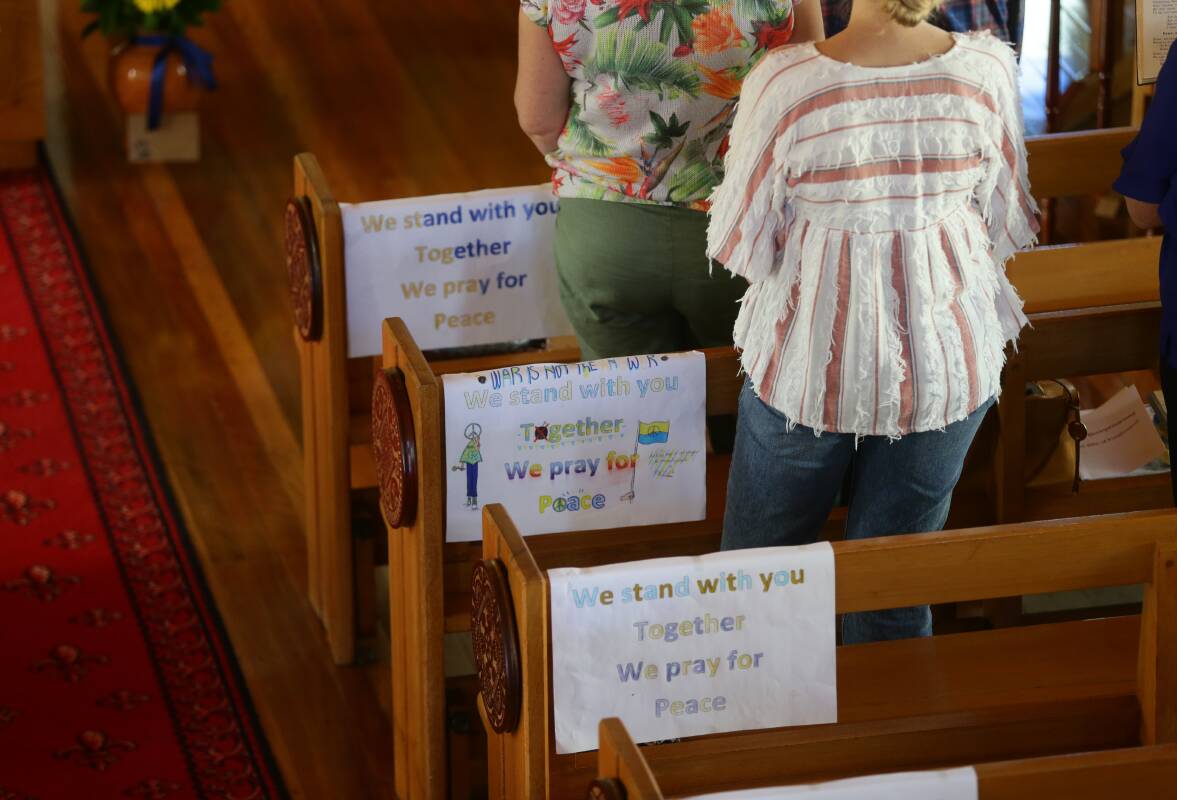








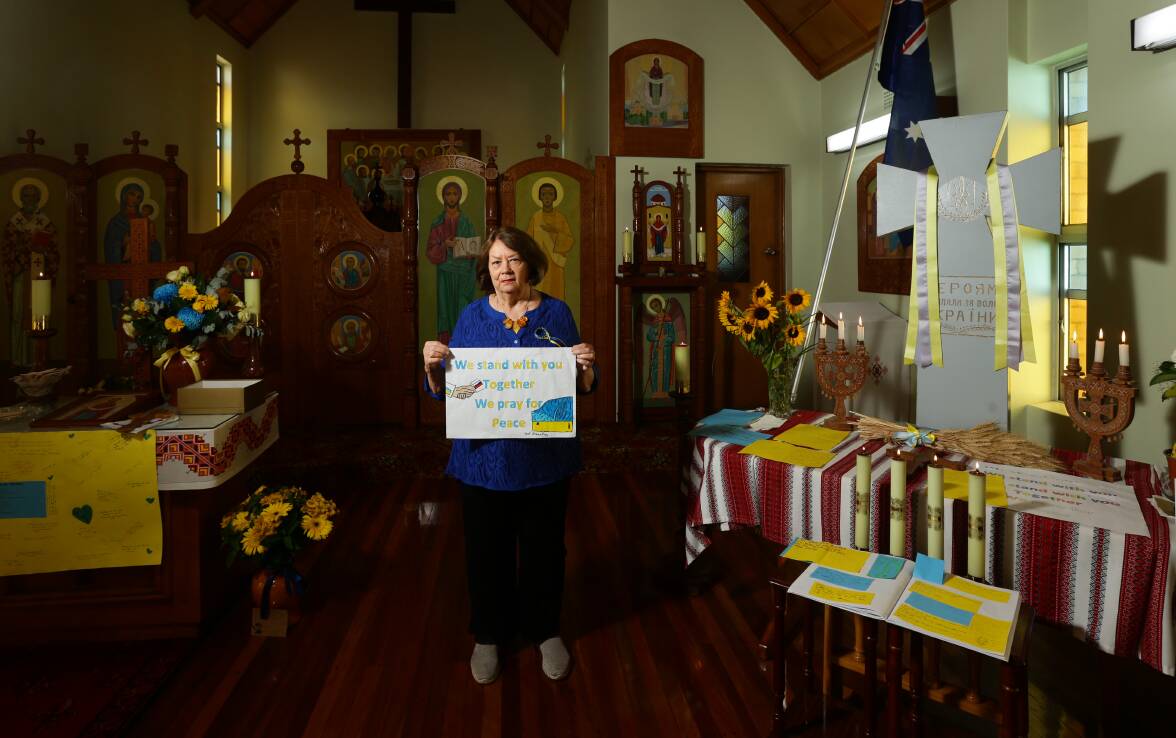
The horrors inflicted on the children of Ukraine have brought back memories for Charlestown's Anna Adnum, who fled the country as a child in World War II.
Mrs Adnum, 80, was aged two in 1943 when her pregnant mother made the difficult decision to leave war-torn Ukraine.
Mrs Adnum hopes for peace in Ukraine but fears a prolonged war, given the ruthless nature of Russian dictator Vladmir Putin, who she describes as a "heartless monster".
She said the Ukraine Catholic Church in Adamstown had been buoyed by community support.
"So many people came to the church who never knew it existed. They've left flowers and cards. It's very emotional," she said.
"Friends of friends have come to our services, which we haven't seen before."
Students from St Mary's Catholic College in Gateshead created signs for the pews, saying things like: "We stand with you" and "Together we pray for peace".
The war in Ukraine has killed more than 135 children.
"I just think it's so sad to see children having to suffer," Mrs Adnum said.
She also felt for the children being exposed to war in the media.
"Children should not be seeing scenes like that on television, but it's touching to see these young kids writing emotional things about other children," she said.
The Russian invasion of Ukraine has resurfaced traumatic memories.
"Now it's Russians, but with us it was the Germans," she said.
The Nazis invaded Ukraine during WWII, leading to an exodus of refugees like now.
"My grandmother lived with us. She said to my mother, 'The Germans are coming, it's going to be traumatic, take the children and go. When things have calmed down, come back'," Mrs Adnum said.
Mrs Adnum, her pregnant mother, brother and sister left Ukraine for Germany. It was a tearful goodbye with her grandmother, who they never saw again.
Her father had to leave Ukraine, too.
"The Germans came and took my father away. They forced him to go. We never saw him again either. I never knew my father at all."
She believes he was forced to join the German Army and died during combat.
"Mamma tried to find him through the Red Cross for many years, but found nothing at all," she said.
Life as a refugee was dreadful in Germany, with the country under attack from the Allies.
"We had no home or food. I remember running from bombs and being shot at," she said.
"I remember running through fields to get to the bunker where we were sheltering. I remember seeing this huge hole and a man in there screaming. Obviously he would have died. I'll never forget that."
She recalled emerging from a bunker to "absolute bedlam".
"People didn't know where to go. Everything was destroyed - there was fire and smoke."
They huddled with another couple of families.
"My brother Mike remembers that we walked into a forest, found a hut and sheltered. There was shooting and voices. Everyone was petrified," she said.
"Mike was on the floor in the corner hiding. The door flew open and this fellow pointed a gun in my brother's face.
"This fellow said, 'It's all right, I'm American'. He gave us some chocolates and chewing gum. I always remember the taste of the chocolate."
It was 1945, with the war having officially ended.
"We were taken to a displaced persons camp and it was good. Mamma worked in the kitchen. My sister and brother went to school and I looked after my young brother," she said.
"Mamma received advice that it was best to go to Australia with her four children. I was eight when we came here. To this day, I could drop to my knees and thank god that Mamma chose Australia. Especially with what's happening now."
They went to the Greta refugee camp in the Hunter and stayed for 3.5 years.
"Mamma worked in a kitchen there," she said.
It was a sad time, though, for her sister Sylvia.
"She turned 15 when we came to Greta. The government policy was that people over 15 had to go on a two-year government work permit. She went to Tara in the Queensland bush, working in a hospital as a nurse aid. She was heartbroken. Mamma worked in the Greta kitchen. She saved up and Sylvia sent money and Mamma put a deposit on a house in Georgetown. She met my stepfather and things got easier."
